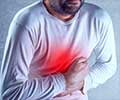Frequently Asked Questions
1. Which doctor should I visit if I have stomach pain and nausea?If you are experiencing stomach pain and nausea, it is advisable to seek consultation with a gastroenterologist. Gastroenterologists specialize in the diagnosis and treatment of conditions related to the digestive system, including stomach pain, nausea, and other gastrointestinal issues. They can conduct thorough evaluations, perform diagnostic tests, and provide targeted treatment plans to address the underlying cause of your symptoms.
2. How to relieve nausea after eating?
To alleviate nausea after eating, try eating smaller, bland meals, staying hydrated, and avoiding strong odors. You can also try ginger tea or peppermint tea, and consider resting in a comfortable position.
3. Why does diarrhea hurt?
Diarrhea can cause discomfort and pain due to the increased frequency and urgency of bowel movements, which can lead to irritation and inflammation of the intestines. Additionally, diarrhea can result in electrolyte imbalance and dehydration, which can contribute to abdominal cramping and discomfort.
4. How to throw up?
It's not advisable to induce vomiting without professional guidance. If you're experiencing persistent issues, consult with a healthcare provider.
5. What is queasy?
"Queasy" refers to a feeling of discomfort or uneasiness in the stomach, often accompanied by a sensation of nausea. It can be described as a mild form of nausea that may lead to an unsettled feeling in the stomach.
6. How to relieve nausea from constipation?
To relieve nausea caused by constipation, you can try the following remedies:
Hydration: Drink plenty of water to help soften stool and ease constipation, which may in turn alleviate nausea.
Fiber-rich foods: Consuming fiber-rich foods such as fruits, vegetables, and whole grains can help promote regular bowel movements and reduce constipation-related nausea.
Physical activity: Engaging in light physical activity, such as walking, can help stimulate bowel function and relieve constipation-induced nausea.
Probiotics: Consuming probiotic-rich foods or supplements may help regulate gut health and alleviate symptoms of constipation and related nausea.
Over-the-counter remedies: Certain over-the-counter medications or laxatives may help relieve constipation and associated nausea, but it's important to consult a healthcare professional before using them.
7. Why does my stomach hurt in the morning?
Stomach pain in the morning can be caused by a variety of factors, including:
- Hunger: An empty stomach in the morning can cause discomfort
- Acid reflux: Stomach acid moving up into the esophagus
- Gastritis: Inflammation of the stomach lining
- Stress: Stress and anxiety can lead to stomach discomfort
"Dyspeptic" refers to a condition related to, or marked by, indigestion or discomfort in the digestive system. It may manifest as symptoms such as bloating, nausea, or abdominal discomfort.
9. Threw up 5 minutes after eating, why?
Throwing up shortly after eating may be due to various reasons such as food poisoning, indigestion, or an underlying medical condition. If you experience recurrent episodes of vomiting after eating, it is important to seek medical advice for an accurate diagnosis and appropriate management of your symptoms.















